“It’s a new day for search,” Microsoft CEO Satya Nadella said today. For 13 years now, Microsoft has tried to get you to use Bing, but you didn’t want to, so its global market share remains in the low single digits. Now, the company is pulling out all the stops in an effort to better compete with Google. Today, at a press event in Redmond, Washington, Microsoft announced its long-rumored integration of OpenAI’s GPT-4 model into Bing, providing a ChatGPT-like experience within the search engine.
The company is also launching a new version of its Edge browser today, with these new AI features built into the sidebar.
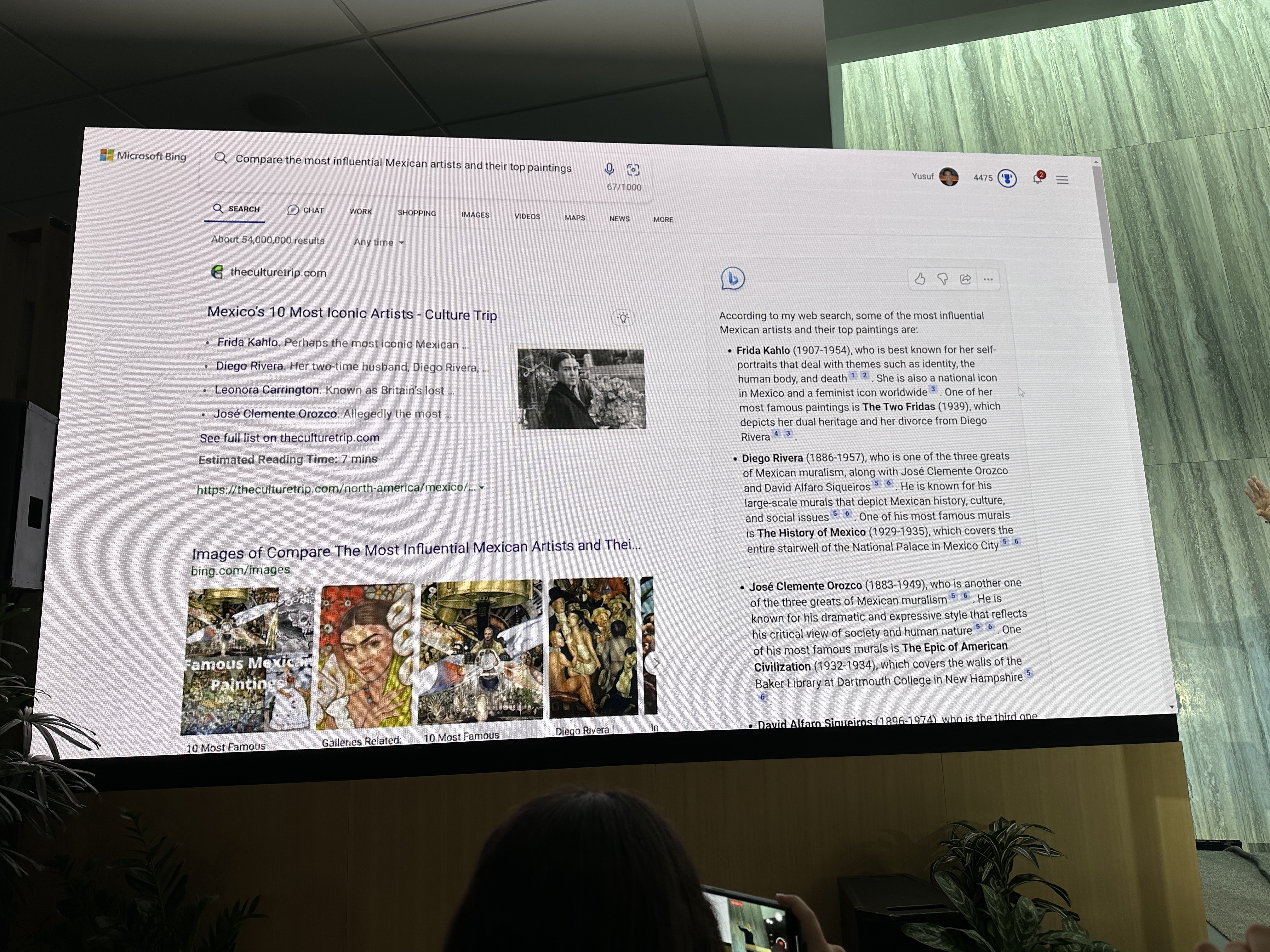
The new experience is now live on Bing, but it’s still somewhat limited. For the full experience, you’ll have to get on the waitlist.
As expected, the new Bing now features the option to start a chat in its toolbar, which then brings you to a ChatGPT-like conversational experience. One major point to note here is that while OpenAI’s ChatGPT bot was trained on data that only covers to 2021, Bing’s version is far more up-to-date and can handle queries related to far more recent events (think today, not 2021).
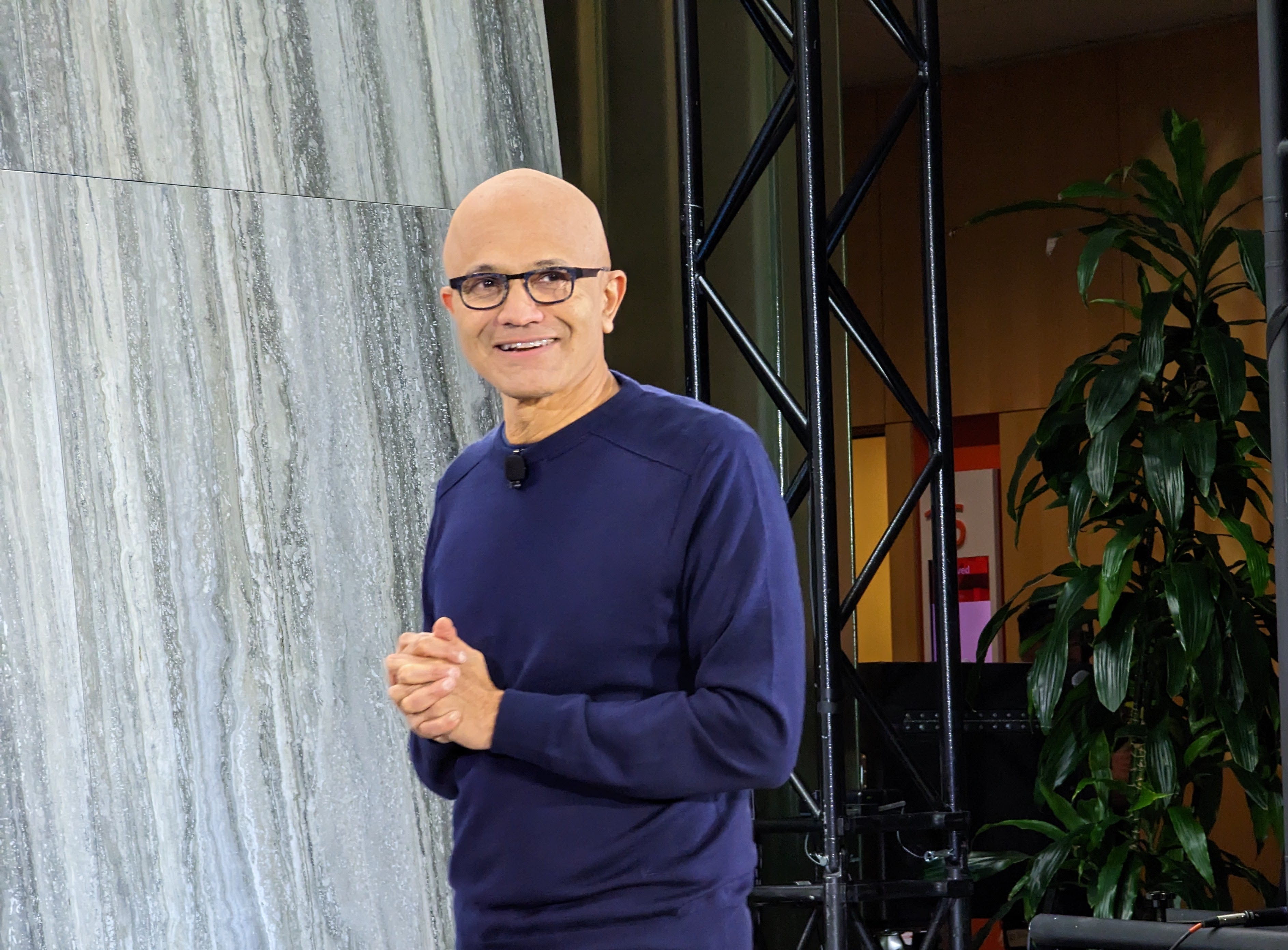
As Microsoft CEO Satya Nadella noted, the team wants to stay true to its AI Principles and acknowledged that, as with every new technology, it’s important to remain cognizant of the potentially negative consequences. “It’s about being also clear-eyed about the unintended consequences of any new technology,” he said. He stressed that Microsoft wants to use technology that enhances human productivity and that is aligned with human values.
Nadella noted that he believes this technology will reshape “pretty much every software category” and stressed that a technology like this has the potential to reshape the web. In his view, every computer interaction in the future will be mediated through an agent. The first stage of this, at least for Microsoft, is search.
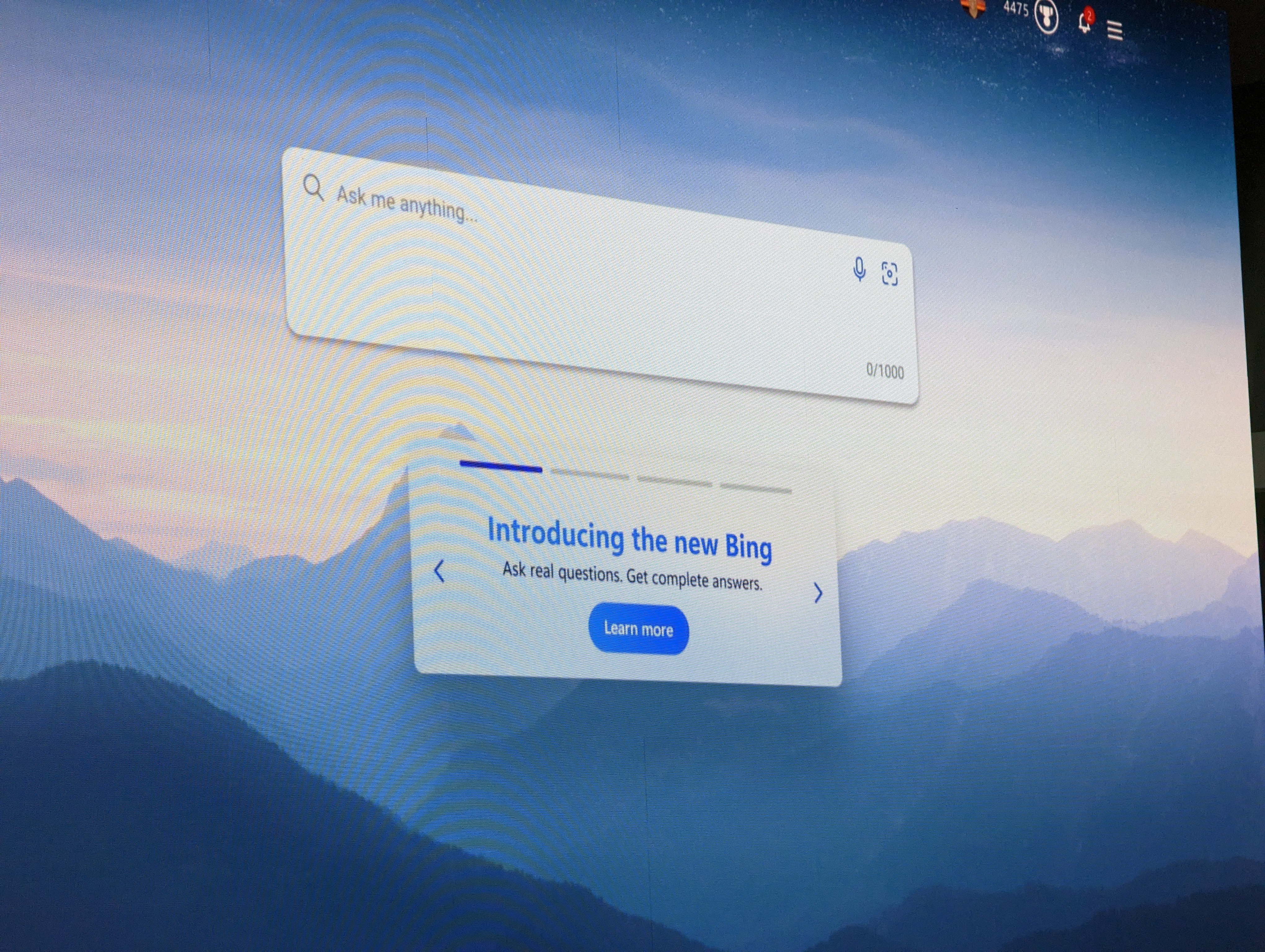
As Microsoft’s Yusuf Mehdi noted, today’s search engines still works really well for navigational queries and those that are informational, asking for basic facts. But for more complex queries (“can you recommend a five-day itinerary for Mexico city?”), which make up half of today’s queries, modern search engines fail.
As for the new Bing experiences, Microsoft will show these GPT-based results in a box on the right side of the search results page. These will pop up when you search for facts that Bing knows the answer to.
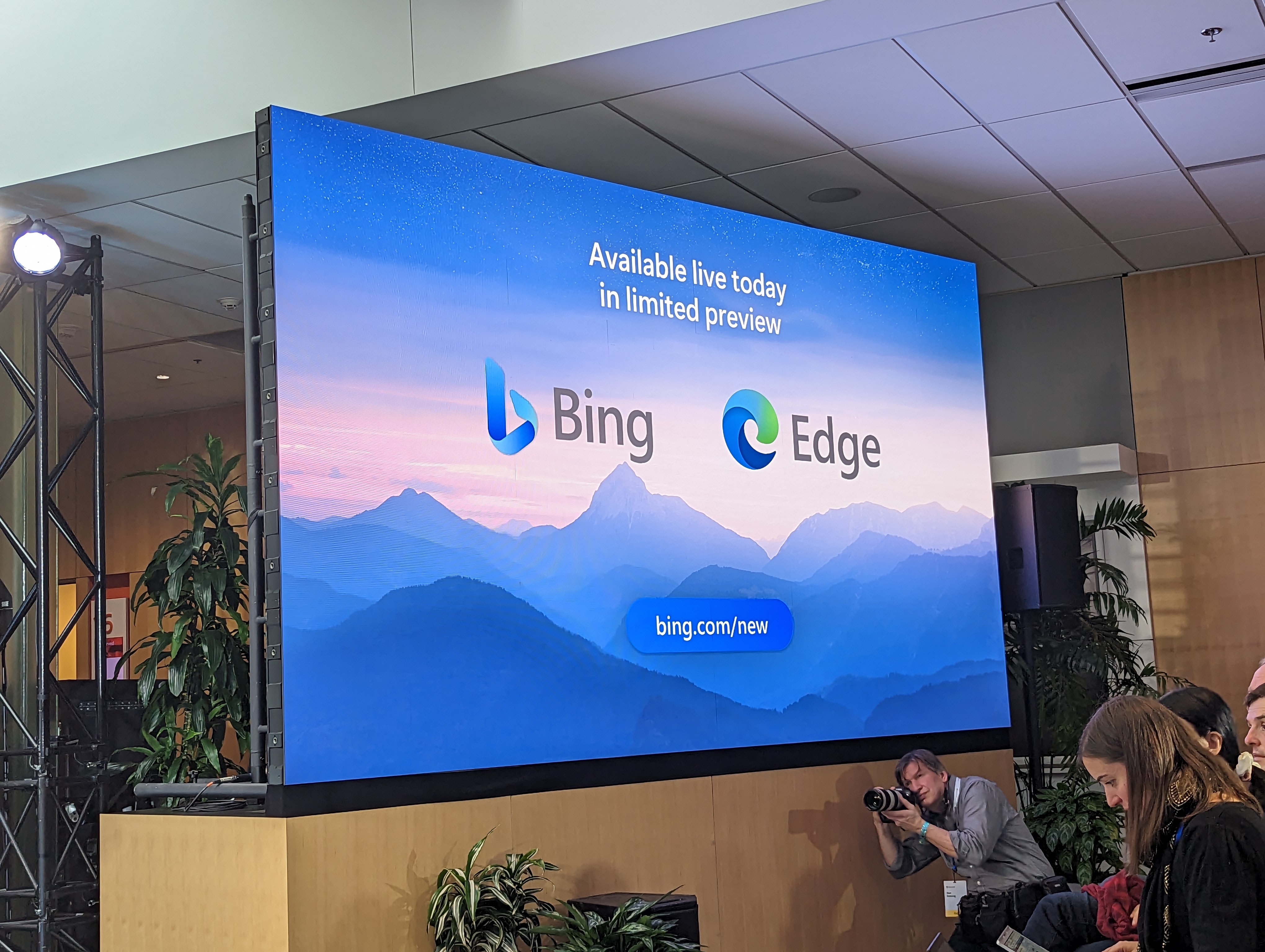
But then there’s also the more ChatGPT-like experience for questions that are a bit more vague and that don’t have an exact answer. The only other major difference you’ll likely note right away is that Bing will occasionally try to prompt you with its own questions, too, and suggest potential answers to those questions. Microsoft’s model is clearly far more up-to-date compared to what ChatGPT currently offers. This includes pricing data, for example, or the ability to use recent data for travel tips and itineraries — and it’ll also happily write you an email to share this itinerary with your family.
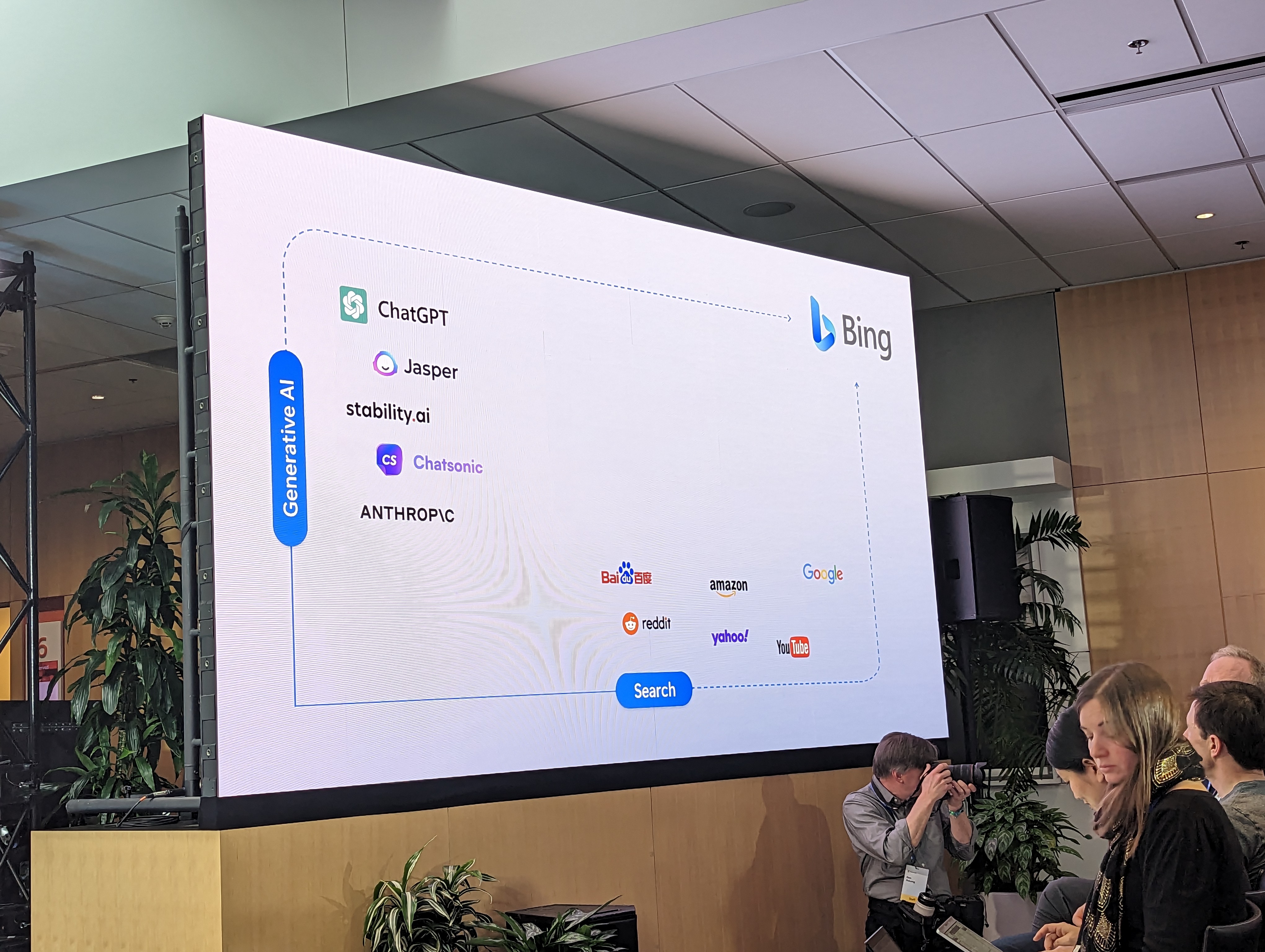
Another important feature here — and one that I think we’ll see in most of these tools — is that Bing cites its sources and links to them in a “learn more” section at the end of its answers. Every result will also include a feedback option.
It’s also worth stressing that the old, link-centric version of Bing isn’t going away. You can still use it just like before, but now enhanced with AI.
Microsoft stressed that it is using a new version of GPT that is able to provide more relevant answers, annotate these and provide up-to-date results, all while providing a safer user experience. It calls this the Prometheus model. What Microsoft is essentially doing here is taking the OpenAI models and then wrap Prometheus and other Bing technologies around it.
Microsoft obviously has a very close relationship with OpenAI. After its initial $1 billion investment, the company recently announced that it would invest even more and extend its partnership with OpenAI, which in turn led to today’s announcement. And while Bing was always a competent search engine (and arguably better than most people ever gave it credit for), it never really gained mainstream traction. It was always good enough, but that doesn’t give users a reason to switch. ChatGPT may offer this reason — at least until Google rolls out its competitor to a wider audience.
Microsoft invests billions more dollars in OpenAI, extends partnership
Currently, there are no ads attached to chat feature of the ChatGPT function in the new Bing, but Microsoft noted that it will monetize these capabilities through ads. Correction: for some queries, including those about shopping, the chat feature will show ads.
Unlike Google, Microsoft doesn’t have a massive advertising empire to protect, so the company is likely willing to forgo some revenue in order to take market share from Google, which yesterday announced Bard, its competitor. Google, however, hasn’t offered a lot of details about how Bard will work and integrate into its search experience. For now, it’s only available to a select group of trusted testers.
Google takes on ChatGPT with Bard and shows off AI in search
One area that these systems are naturally geared toward is voice assistants. Like Microsoft is wont to do, it launched its Cortana voice assistant with a splash and positioned it as a competitor to Google’s Assistant and Siri. Like Bing, it was a competent product (more so than Samsung’s Bixby) that didn’t gain traction, so Microsoft slowly pulled back. In 2021, it re-positioned Cortana as the service that powers AI-based productivity experiences in Microsoft 365. The new Bing may now give Microsoft the tools to take on this market, too.
What all of this means for the future of the web and the financial health of online publishers who depend on people clicking on their links remains to be seen. It’s quite likely, though, that tools like this will result in fewer clicks and hence fewer ad dollars for publishers. This has the potential for a massive paradigm shift.































Comment